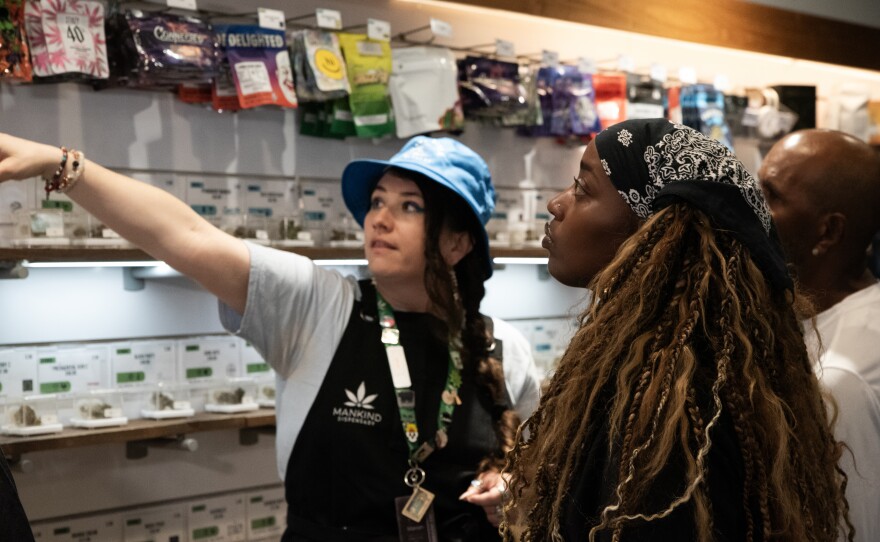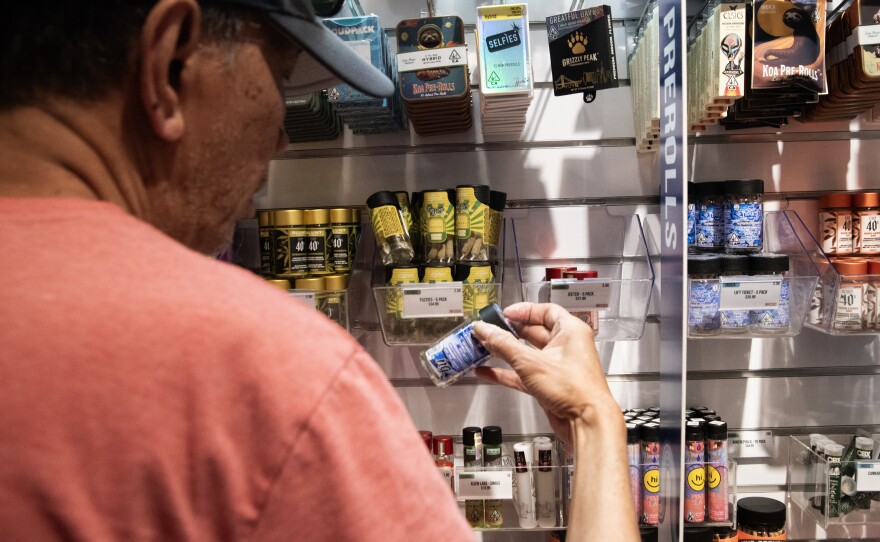The County of San Diego extended the application deadline for their Socially Equitable Cannabis Program to August 23.
Nearly 200 people have already applied.
For some, it could mean life-changing access to San Diego’s restricted and lucrative cannabis industry.
Eligible applicants will receive extra support, like help clearing their records and industry training.
They can also enter a lottery this September for grant money. Ten lucky applicants will receive $28,000 toward business startup costs like rent, application fees, legal help and equipment — often the biggest barriers to entering the industry.
To qualify, applicants must have a cannabis-related arrest or conviction in San Diego County prior to November 8, 2016.
If they weren’t subsequently incarcerated, they must also be considered low-income.
A county spokesperson said applicants are responsible for obtaining documentation proving their eligibility, and finding old arrest and conviction records has been a challenge for many.
The program is meant to be a form of reparations for people harmed by the War on Drugs, which disproportionately impacted Black and Latino people.
“I got arrested twice for cannabis,” said Joshua Caruso, an applicant. “And it did some really messed up stuff in my life, drained me financially, put my whole — flipped my whole life around. Barely made it out, but I made it out.”
He co-founded a small batch cannabis cultivation company, Calexico Prime, and runs the cannabis contest “Farmers Cup.”
He said he has to grow outside of San Diego County, and partner with dispensaries to sell it in San Diego.

“We did not have access to the license type, or an opportunity to get our foot in the door,” he said.
He said that’s kept his business “stuck at a certain point,” but this program could change that.
“This will give us an opportunity to open up a cultivation right here in our hometown, make all the good weed for the people, and bring back revenue for the city and for us and our families and everybody here,” he said.
Caruso said the grant money would open up “a plethora of opportunity.”
“Right now, we're limited to what we can handle financially — which, we don't come from money, so we had to grind this whole time,” he said.
Caruso’s application will have an equal chance in the lottery as those of people with no business experience.
These lottery winners won’t get rich overnight.
A county spokesperson said cannabis licensing isn’t projected to be available for social equity applicants until late next year.
Until then, they can’t open any cannabis business within the unincorporated areas of the county.
Once licensing opens, they will have a three-year head start to apply before nonsocial-equity businesses.
The county also plans to award 13 coveted retail storefront licenses prior to cannabis licensing.

The spokesperson said they have yet decided on that process yet, but “lottery is in high consideration.”
The stakes for hopeful applicants were raised when the city nixed their cannabis equity program, returning nearly a million dollars in grant money to the state.
Caruso’s hopes extend beyond his businesses, to the people still incarcerated on cannabis charges.
“They're still suffering those consequences when at the same time you have people making millions and millions of dollars off this beautiful plant. And I don't think that's fair,” he said.






